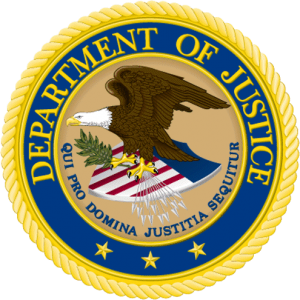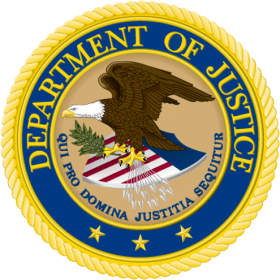Judge Denies Request to Allow Poker Playing in Phua Case
Reinforcing “no gambling” provisions of a bail agreement that were previously established, U.S. Magistrate Judge Bill Hoffman has denied a request by accused illegal-gambling-business defendants Paul and Darren Phua to be allowed to play poker at Las Vegas casinos pending the resolution for their case.
Attorneys for the father-and-son Malaysian nationals filed a motion last month seeking relief from the restriction that prevents them from entering casinos. The pair remain on 24-hour electronic monitoring, are living separately in the Las Vegas homes of Tom Dwan and a prominent area physician, and are on curfew, pending the outcome of the case.
 In the motion to modify, the Phuas’ prominent defense attorneys argued that playing poker was not an activity that had relevance to the charges in the case, and thus should be permitted to defendants who have continually demonstrated good behavior while awaiting trial. Paul Phua, the father, is alleged to be the kingpin of a major illegal online sports-betting boiler room operation that was being operated out of guest villas at Caesars Palace in June and July. Besides the Phuas, five of the six other defendants in the case pled guilty, paid fines and were deported, while charges were dismissed against the sixth defendant.
In the motion to modify, the Phuas’ prominent defense attorneys argued that playing poker was not an activity that had relevance to the charges in the case, and thus should be permitted to defendants who have continually demonstrated good behavior while awaiting trial. Paul Phua, the father, is alleged to be the kingpin of a major illegal online sports-betting boiler room operation that was being operated out of guest villas at Caesars Palace in June and July. Besides the Phuas, five of the six other defendants in the case pled guilty, paid fines and were deported, while charges were dismissed against the sixth defendant.
The motion, however, was met with a heated response from US prosecutors, who complained that the original crimes were alleged to have occurred on casino property — the guest villas at Caesars Palace — if not actually in the casino’s gaming area itself.
The presiding magistrate sided with the prosecutors and denied the Phua’s access to Vegas’s highest-stakes poker games, in which they have participated on other occasions. Wrote Hoffman:
… Because defendants present nothing new or material apart from the notion that they require more places to shop, eat, attend shows, and play poker, this Court finds no basis to grant defendants’ request. Indeed, this Court agrees with the government that a plethora of stores, restaurants, and shows are accessible to defendants without them having to enter a casino, and defendants fail to establish that the condition at issue is unduly restrictive. The nature of the charged crimes, along with defendants’ failure to articulate a sufficient statutory basis for modification, further supports denial of defendants’ motion. …
Though not stated specifically, prosecutors likely wanted to see the Phuas remain as separate as possible from high-profile members of the Vegas poker community. The $2.5 million in bail posted to allow for the Phuas’ pre-trial release came from Phil Ivey and Andrew Robl, who along with Dwan and several others were frequent participants in the same high-stakes games — usually in Macau but on occasion in the US — in which the Phua’s also played.
An interesting footnote in the government’s motion to deny bail modification concerns Paul Phua’s related arrest in Macau, just prior to his release and subsequent arrival in Las Vegas on his private jet. Paul Phua and 21 others were arrested on similar gambling-business charges, and he was quickly released, though the details remain unclear and often contradictory. Some news reports from the region say he was deported, while others say he was allowed to leave freely while on bail; Asian news outlets have subsequently reported that Phua, a Malaysian national, had acquired a diplomatic passport issued by the European principality of San Marino.
In any event, not all of the background concerning Paul Phua was known at the time his initial US bail was granted, allowing Magistrate Hoffman to consider additional evidence in reviewing the bail terms. The US prosecutors thus included this footnote:
Indeed, the conditions of his release remained unknown to FBI and Nevada Gaming agents even up to the time the three search warrant affidavits for Caesars Palace Hotel and Casino Villas 8881, 8882, and 8888 (hereafter, “the search warrant affidavits”) were executed. However, as shown in Exhibit 7, messages subsequently recovered from Darren Phua’s iphone (evidence item number 1B35) acknowledge that his father, Paul Phua, had been arrested in Macau by the Macau police which is “a friend of Paul’s and they are negotiating now. Hopefully they want only money.” The messages further mention paying 4-5 million Hong Kong dollars under the table to bail Phua out, and note that, as of mid-June, it appeared there were no arrest warrants for Paul Phua’s arrest in Asia or Europe.
The full story behind the Macau arrests and Paul Phua’s subsequently quick release has yet to emerge. The Phua case has also garnered attention in his country of Malaysia, with opposition leaders now openly questioning his connections to government officials following the publication of a private letter to high-ranking FBI official regarding Phua and American prosecutors’ unverified assertions of his links to an Asian organized-crime group.


















COMMENTS